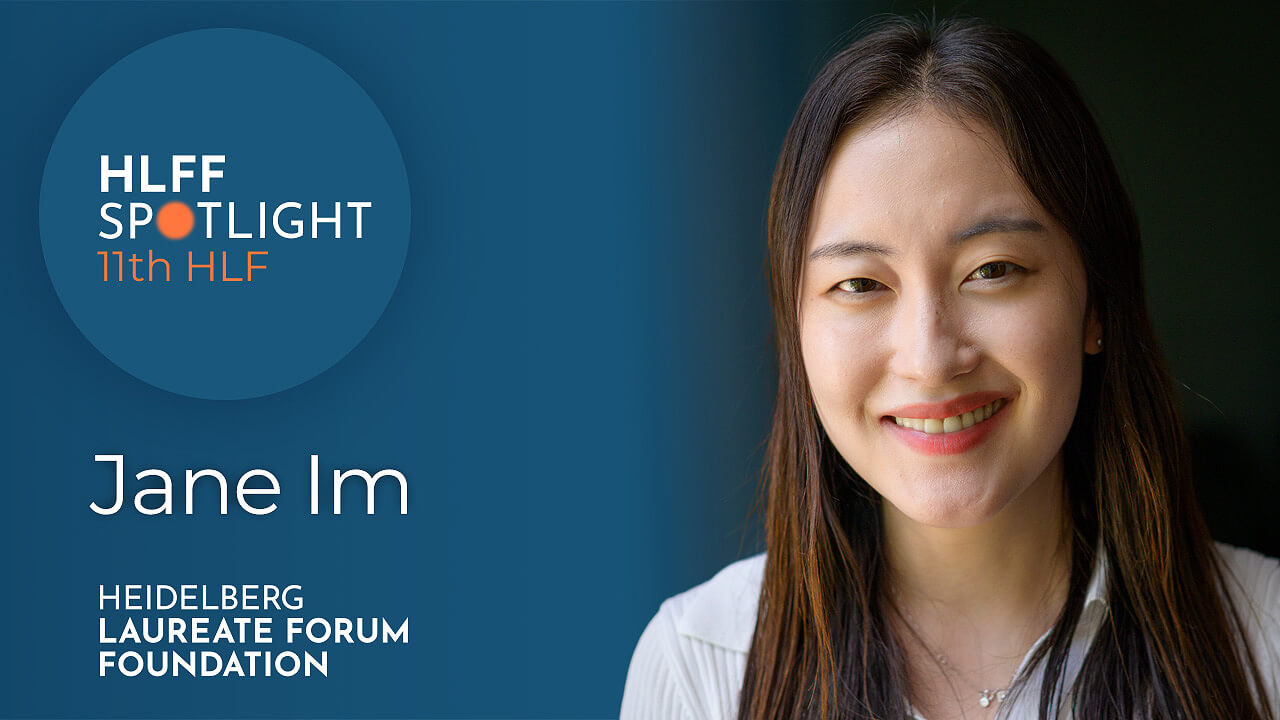Jane Im
The Heidelberg Laureate Forum has a single purpose: To provide some of the brightest minds in mathematics and computer science with the space and time to make connections and find inspiration. The HLFF Spotlight series shines a light on some of the brilliant individuals attending the event.
Jane Im is a PhD candidate at the School of Information & Department of Computer Science and Engineering at the University of Michigan, where she works on designing and building software grounded in consent – systems that enable consensual interactions between people, as well as between users and tech companies. She is attending the 11th HLF as a young researcher.
What first inspired you to pursue a career in your field?
What drew me to Human-Computer Interaction (HCI) is that I can care about both people and technology, but this wasn’t so obvious at first. I started as a Business Management undergraduate student, but found myself not enjoying the courses. I had an intuition that I wanted to research and create technologies, so I decided to also study Computer Science, which was unusual back then in Korea. But, as much as I tried to resist it, my core interests still revolved around people, not only the systems. I eventually learned about HCI when I visited MIT, and thought, “This is it!”
What has been your proudest moment in your scientific career so far?
I’m most proud of developing a system called Moa. Moa enables sensitive information sharing in the context of PhD advising relationships, by letting users define what I call their “consent boundary.” When people with less power experience challenges in relationships with those in power (e.g., faculty mistreating PhD students), it’s difficult to connect with others in similar situations, even with sophisticated social media. This is because the internet tends to anchor interactions between users onto a particular “space” or “network.” Instead, Moa lets users flexibly draw consent boundaries per post in terms of identities (e.g., gender) and PhD-related experiences.
What is the most exciting or meaningful development happening in your field right now and why?
Two come to mind (although they overlap with each other). The first is reimagining social media. Current social media has problems ranging from platform companies’ massive data collection to online interpersonal abuse. There is a lot of exciting work on reimagining social media’s features and interfaces from the lens of safety, consent and empowerment. The second is research on developing AI-powered systems in ethical ways. HCI researchers have a lot to contribute here, from constructing datasets with users’ valid consent, to deploying AI models in a safe way, especially as HCI has a long history of developing human-centered design principles.
What are you most excited about for the upcoming 11th Heidelberg Laureate Forum?
I’m immensely excited to meet and learn from various laureates as well as fellow young researchers. It’s not an everyday opportunity to learn from so many extremely sharp-minded and hardworking researchers. I remember reading an inspiring interview with Dr. Yael Tauman Kalai (before applying to the HLF), and am especially looking forward to asking her questions. I’m interested in listening to laureates’ concrete stories about the pathway to their discoveries, as well as learning about how they developed their own unique taste for research, especially in the long run.
Links
